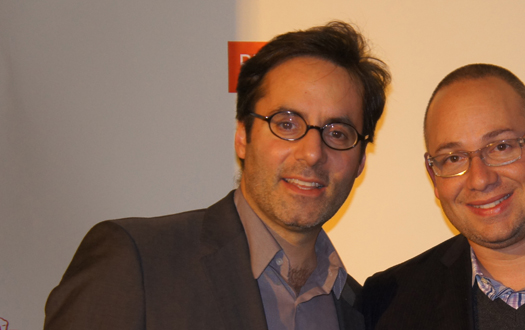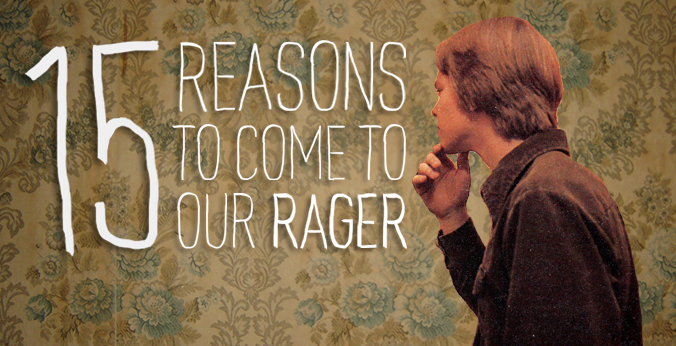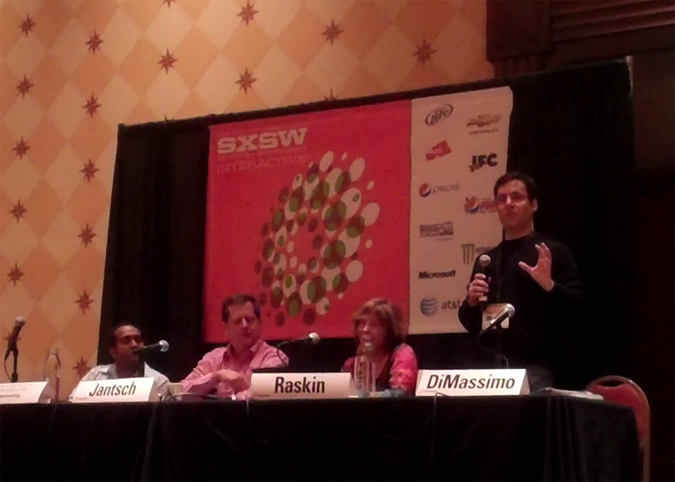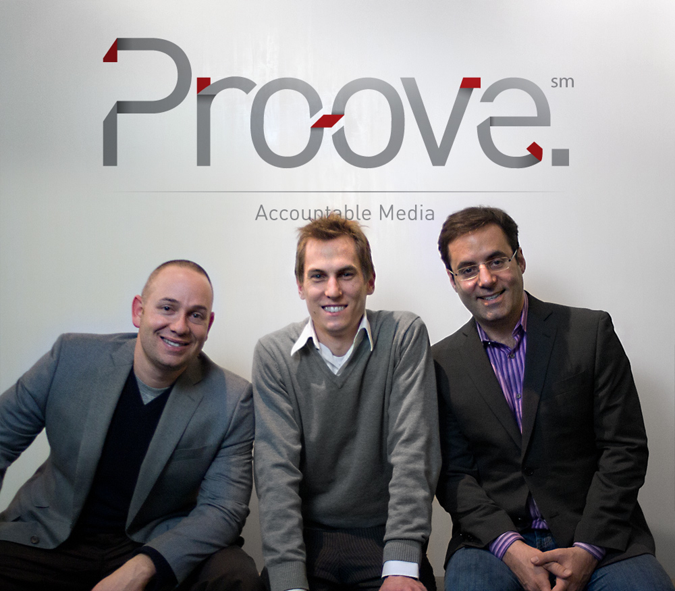Mark DiMassimo, seen on the left, discusses company brands and company performance on CNBC’s Power Lunch. To watch the clip click the picture above or click here.

Mark DiMassimo, seen on the left, discusses company brands and company performance on CNBC’s Power Lunch. To watch the clip click the picture above or click here.

National Jewish Health in Denver, Colorado, named by U.S. News & World Report as the #1 respiratory hospital in the U.S., is launching a new campaign created by DIGO Brands in New York City.
‘We never say never’ captures the spirit behind the extraordinary commitment and expertise that National Jewish Health brings to the treatment of people with respiratory, cardiovascular, immune and related disorders” says Mark DiMassimo, DIGO CEO and Chief Creative Officer.
“‘We never say never’ is the reason so many things that were once impossible are now routine, and it’s the reason that the intractable, the untreatable, the incurable and the unmanageable are routinely turned around at this leading academic medical center.”
The 111-year-old institution is known worldwide for treatment of the most challenging patients and for groundbreaking medical research. Its renowned faculty integrate the latest scientific discoveries with a team approach to deliver unsurpassed medical care. Michael Salem, M.D., President and CEO of National Jewish Health, says, “When I heard the line ‘We never say never,’ I realized instantly that these four words describe what differentiates National Jewish Health. Patients hear a lot of ‘never’ out there. At National Jewish Health, we are committed to finding solutions where others have not. It’s enormously satisfying to know that we’re giving patients hope and life. National Jewish Health assigned the account to DIGO in July 2010 after a nationwide search. The new campaign encompasses television, radio, digital, newspaper, magazines and out of home. Media will run nationally.
“We have always been a national institution,” adds Salem. “Patients from around the country with respiratory, cardiovascular, immune and related diseases have come to
Denver and National Jewish Health for 111 years.”National Jewish Health is known worldwide for treatment of patients with respiratory, cardiac, immune and related disorders, and for groundbreaking medical research.
Founded in 1899 as a nonprofit hospital, National Jewish Health remains the only facility in the world dedicated exclusively to these disorders. Since 1998, U.S. News & World Report has ranked National Jewish Health the #1 pulmonology hospital in the nation. DIGO Brands, founded in 1996 by Mark DiMassimo, is a brand-driven growth network. Our companies work together seamlessly to help ambitious organizations grow.
DIGO Brands have partnered with visionary leaders on many of the extraordinary growth successes of the past two decades. These include Comcast, Crunch Fitness, JetBlue, National Jewish Health, Island, ESPN, HBO, thinkorswim, Citi, Gateway, McKinsey, and Memorial Sloan-Kettering Cancer Center.
DIGO Brands includes DiMassimo Goldstein, a leading full-service brand, advertising, direct and digital agency; DIGO/Ericho public relations and social marketing, brand-driven content, entertainment and digital products; and the Tappening and Offlining movements.

Royal Honeymoon Rumors Swirl. President Obama At Ground Zero. DIGO Marks 15 Years of helping visionary leaders grow brands and businesses. It’s a big week! We’ve gotten to see a lot of history up close in the past decade and a half. We had a front row seat for the pc goldrush, the first dot com boom and bust, the attacks of September 11, 2001, and the devastating fiscal aftermath, the electronification of the markets, the meltdown of 2008, the socialization and gamification of everything…
Through it all we joyfully hastened the extinction of dinosaur business models while championing the sometimes spectacular rise of new ones.In our first 15 years, we’ve relished the hard work of growing brands, campaigns and businesses. Even more so, we’ve loved building the relationships and credibility that continue to drive us relentlessly forward.People you will admire, will tell you how we committed to their success, then drove ourselves and everyone involved to do what it took to deliver what we promised, and more. People with whom we have been privileged to change the world, either a little or a lot. People who believe as we do, that there is no success without commitment.
So here’s to the next 15 years of Brand. Driven. Growth. Let the adventure continue!

One part social scientist, two parts creative marketer, DiMassimo is a writer, creative director, entrepreneur, experimenter-in-chief, CEO and founder of DIGO.
After studying social sciences at Cornell and Purchase College, telemarketing advertising specialties, taking a band on the road, founding two successful companies and making tongues wag for more than a decade with his work for a who’s who list of top direct and integrated Madison Avenue agencies, DiMassimo had an epiphany: “I’d rather sweep the floors in a great place than rule a mediocre company!”
The same day, he bought a broom and presented himself for work at a promising agency he’d read about. Within a year, he rose to creative director of Kirshenbaum & Bond, building an integrated marketing group that, within three years, constituted more than half the agency and had become a multiple Effie Award winner, while helping the agency nearly triple in size.
What is your personal brand?
Brand. Driven. Growth.
Seriously playful, challengingly appreciative, purposefully empathetic — inspired, business, artist.
What drives you?
I was born with a first-class imagination.
I can see the future coming, envisioning the possibilities in Technicolor 3D Sensurround, with the volume on eleven.
My imagination has the power to paralyze me with fear or inspire me to great feats. It has done both. I have lived both.
I have had days, fortunately decades in the past now, when courage was crossing a bridge, taking a bite of food or walking out the front door.
So I take nothing for granted but the opportunities that are right in front of me.
I know I can be fearful or courageous, or both at the same time. Every day, my world can either expand or contract. Courage is a muscle. Inspiration is the opposite of fear. And a skill that improves with practice. It lets you see challenge as opportunity. Today’s decisions as the fathers of tomorrow’s choices.
So, growth isn’t an option for me. It’s not an intellectual concept. It’s a must.
It’s just the opposite of complacency. Because the future is coming. And, hey, you never know.
So let’s work on what we can, today!
Tell us a personal growth story.
I just did.





What is your personal brand?
The Investigator
What drives you?
Curiosity and ambition
Tell us a personal growth story.
The first time I was put in charge of my department and presented our findings on a project to the CEO, the presentation was very thorough about our process and learnings. At the end I asked the CEO what she thought we should do. She shot me a look that I’ll never forget and said, “I’m paying you to tell me what YOU think we should do.” Instant growth moment. Of course, I did tell her what I thought and I’ve been seriously over-sharing what I think to CEOs ever since!
Offlining is becoming a growing trend — online. It was a topic of discussion at the recent tech conference SXSW, where Mark DiMassimo exhorted the crowd to step away from their smart phones. DiMassimo and Eric Yaverbaum are offlining pioneers, having launched Offlininginc.com, a site that encourages visitors to make an “offlining pledge.”
An article this month in U.K.-based magazine Prospect takes a closer look at the phenomenon.

“We have (at SXSW) incredibly smart people, very capable people, very motivated people – and what are we working on? What are we obsessed with? We’re obsessed with engagement, stickiness, gamification, making sure that we’re attracting people to our worlds, engaging them. We are working very very hard at making sure that when people start to interact with whatever it is that we want them to interact with, that they go as deep as they can, stay as long as they can, they come back as much as they can. So there’s this incredible creative energy focused on the “on” button. Where is the business model in the off button? Where is the business model in helping people find some balance?” – Mark DiMassimo, speaking at SXSW.

Q: Let’s start with the name. Proove.
A. Proove is our twist on prove, which is a value we live by. It is a hard word for some people to commit to…I mean it is quite a word to live up to. That’s why I like it. It says everything we are: accountable, actionable and measurable. And we’re willing to prove it, not just say it. We live and die by our performance, and we’re willing to commit, right there in the name — in the very first thing you learn about us — to standing behind our work. And the extra “O”, that’s because it’s not all science. There’s some magic required too. Some art.
Q: Accountable, actionable, measurable. Can you tell me more about how you do that?
A: What got me excited and challenged about Proove is how we can not only provide service but also drive differentiation. Here is an example: our reporting that we deliver to our clients is robust, but we’ve taken it a step further. We look at factors outside of paid media that could potentially impact media performance, which typically leads to unique insights into our clients business. It’s about the story behind the numbers, the real story. We believe in numbers but we want to go beyond the numbers and offer actionable analysis.
Q: The media landscape is changing so fast. There’s the rise of social, the ever-changing world of SEO, new media outlets, shifting demographics, the rise of mobile and other connected devices and on and on. In the face of all this and more, how should a marketing executive view the planning process?
A: The planning process doesn’t change, but the consideration set when evaluating media channels certainly does. A key piece to staying on top of the landscape is to be aligned with the latest technological and targeting advancements that are being introduced. I don’t want to tell a client that he or she should be doing social, SEO, mobile, etc., just based on content — that was what happened 1-2 years ago and agencies are still making these broad recommendations. I want to tell the client that he or she should have media presence across mobile, social, etc., aligned with relevant content & with “X” level of targeting across these tactics. The cutting edge targeting advancements is what is exciting and what to pay attention to. The planning process will stay the same as the landscape evolves, but targeting is what is truly evolving. We develop a matrix of channels, targets and understand how they work together in an integrated fashion. It’s not just the channel that changes but the messaging needs to be aligned both for that channel, for the target and for the way the channel fits into the target’s life.
Q: You spent many years working at some of the world’s biggest agencies. Why did you start Proove with DIGO Brands, a mid-size firm?
A: Large agencies have their own model, which works for certain clients. I am excited about being at a mid-size agency because we are able to respond to our client’s needs with more nimbleness, flexibility and speed. In my first few months here, I’ve witnessed many examples of creative work, problem solving and innovation happen much faster than the large agencies. I’ve seen things that take literally 6 months at a big agency happen here in a matter of a couple of weeks. At a firm of this size, we’re able to bring our best minds to the table and to think proactively about the client’s business, not just their media. It’s a completely different mind-set and level of customer service.
Q: What keeps you up at night?
A: There is a popular advertising phrase that goes: “half the money I spend on advertising is wasted; The trouble is, I don’t know which half”. Proove is about putting that cliche to rest. We are here to eliminate the waste and being able to show the client exactly what happened. We’re not offering guess work. We’re offering to Proove it.